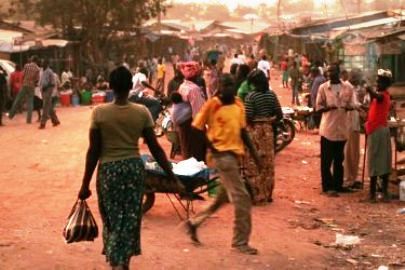Five killed in blast of buried explosives in Juba
October 18, 2013 (JUBA) – Five people were killed on Thursday when explosives exploded in the South Sudanese capital, Juba at Suk Sitah area, near the former military barracks of the Sudan Armed Forces (SAF).

The statement, issued on the state-run SSTV, further explained that the blast occurred when the children were digging a foundation of a house in which they were hired to build, thus hitting the buried explosives.
The four dead were identified as very young boys from the Murle community.
Phillip Aguer, the spokesperson of South Sudan army (SPLA) also confirmed the incident in an interview with Sudan Tribune on Thursday evening.
The incident stirred an outcry from the citizens who witnessed the scene, with some accusing the government of allowing children to be subjected to such hard and dangerous labour in the country.
Children as young as 12 are involved in the construction industry in South Sudan as well as involved in business boda boda (motorcycle) ridings, which always involve fatal road accidents.
Others challenged the demining authority to ensure that such war leftover explosives such as grenades, some of which are still visible in the towns, are cleared.
South Sudan split from Sudan two years ago after a brutal civil war. Juba was a garrison town held by government troops from Khartoum, but southern rebel forces controlled the surrounding countryside.
Large areas of the impoverished country are littered with debris of war, including unexploded explosives such as artillery as well as landmines.
Casualties are reported every year, especially as thousands of refugees return home and begin to build houses or till the land for farming.
(ST)
